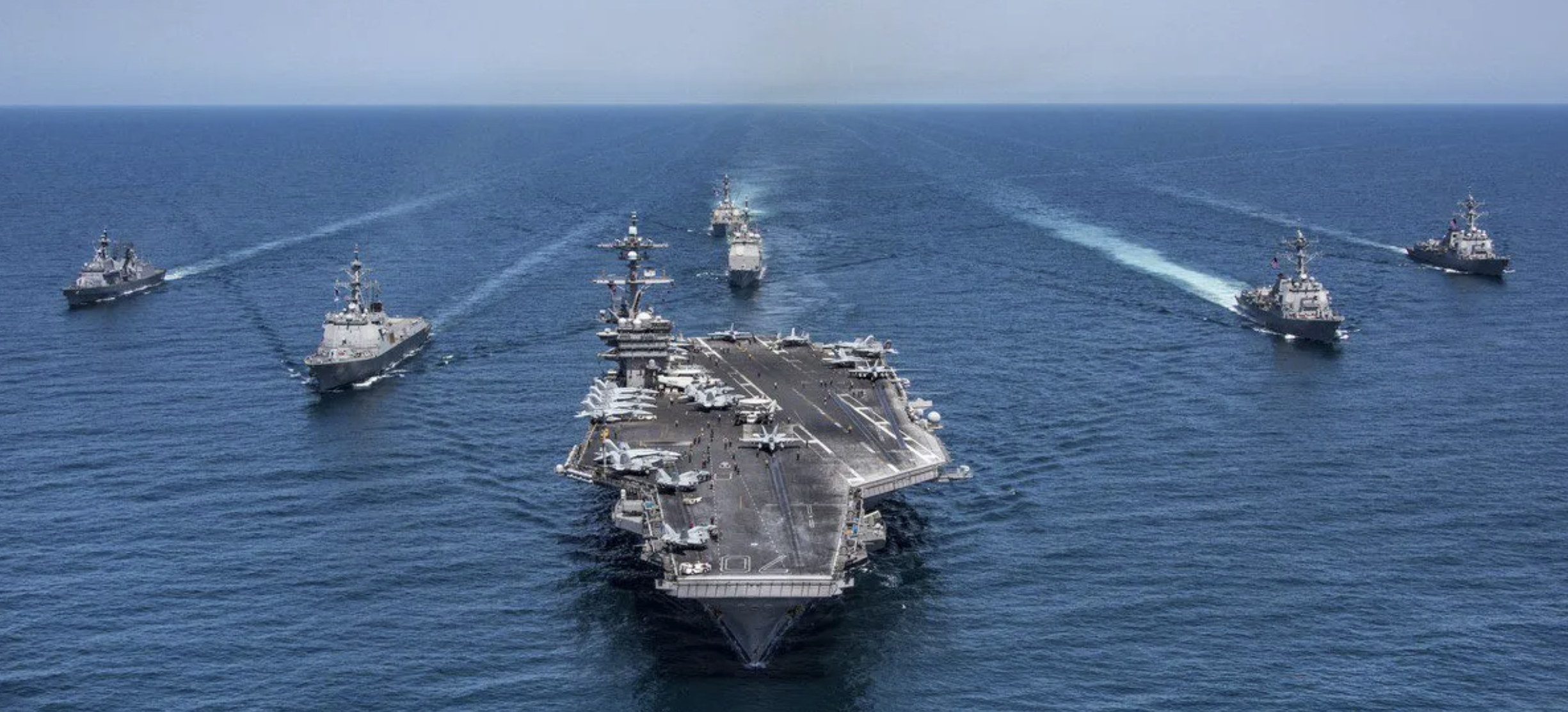During the Christmas period, America’s role as global policeman has been coming under scrutiny.
The origins of the story go back weeks, with Iran-backed Houthi rebels in Yemen attacking commercial ships in the Red Sea in response to Israel’s war in Gaza. These attacks culminated in the decision by global shipping companies to avoid transit through the region due to the heightened risk.
As a result, the Houthis have now enacted a de facto naval blockade — without possessing a navy. In response, on 18 December, the Pentagon announced Operation Prosperity Guardian, but many allies — such as Spain, Italy and France — declined US command over their navies in the region.
For a country whose global dominance rests on control over the high seas, this was bad optics. Shipping companies, however, were willing to return to the region now that they were under a naval umbrella. “With the Operation Prosperity Guardian initiative in operation, we are preparing to allow for vessels to resume transit through the Red Sea both eastbound and westbound,” the Danish shipping giant Maersk said in a statement.
But it does not appear as though the attacks have stopped. US Central Command reported that on 23 December the Houthis fired two anti-ship ballistic missiles and four unmanned aerial drones. Two container ships were attacked but neither were damaged, with the US Navy shooting down the drones. While this may seem like a victory, it shows that the Houthis are not deterred. Eventually, one strike is bound to get through.
That is because the weapons that the Houthis are using, most of which are of Iranian origin but some of which are domestically produced, are extremely cheap and quick to build. The air defence that the US Navy is using is neither cheap nor quick to build — much less to transport to the Red Sea for resupply.
Contemporary drone and missile technology is reshaping the global battlefield in ways that are rendering aspects of modern military technology too expensive. Politico quotes an unnamed official from the Pentagon who highlights that the US Navy is shooting down drones that cost $2,000 with missiles that cost $2 million. “The cost offset is not on our side,” the official said.
How long can this go on for? The Houthis can continue harassing ships for as long as they care to. But the US Navy is burning through expensive weapons trying to stop them (a similar problem to that faced by Israel’s Iron Dome). It is only a matter of time before one of the Houthi weapons slips through naval air defences — if another container ship is hit, can global shipping companies really justify transit through the Red Sea?
We are already seeing competition of sorts entering the arena with the collapse of the American guarantee. The Indian Navy is deploying three warships to the Arabian Sea after attacks on an Israeli-linked vessel headed to India. State actors are starting to realise that they can extend their own naval and commercial power by getting in on the action of “multipolar naval policing”. This will likely soon be followed with bilateral and multilateral diplomatic arrangements and possibly even bespoke shipping insurance arrangements.
While the US Navy is tied down in the Red Sea, the Royal Navy has dispatched a warship to Guyana over a disputed territory with Venezuela. What Guyana and the Red Sea conflict share is that both are related to global oil markets. Oil shipments through the Suez Canal tanked after the Houthi attacks, and Guyana has come to be widely seen as an alternative source of oil after relations between the US and Saudi Arabia soured.
Evidently, Pax Americana is fraying at the edges. How much longer can it last?











Join the discussion
Join like minded readers that support our journalism by becoming a paid subscriber
To join the discussion in the comments, become a paid subscriber.
Join like minded readers that support our journalism, read unlimited articles and enjoy other subscriber-only benefits.
Subscribe